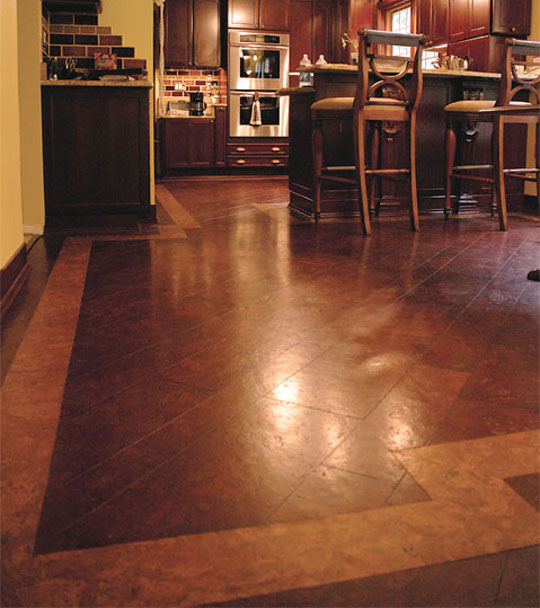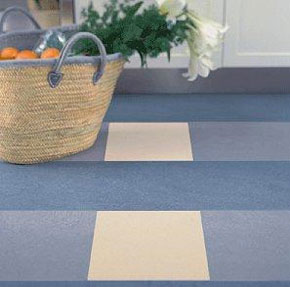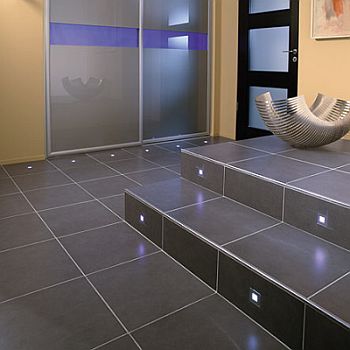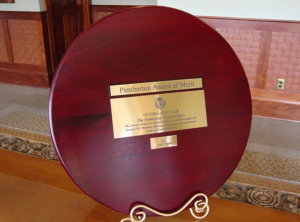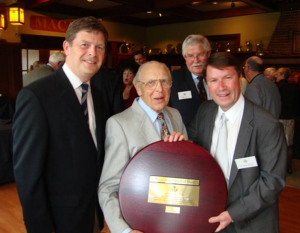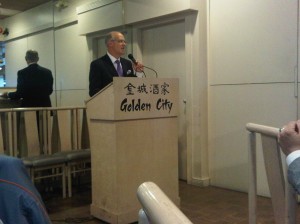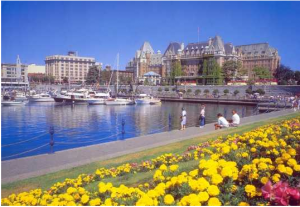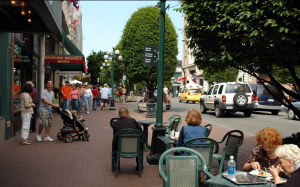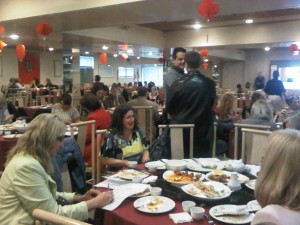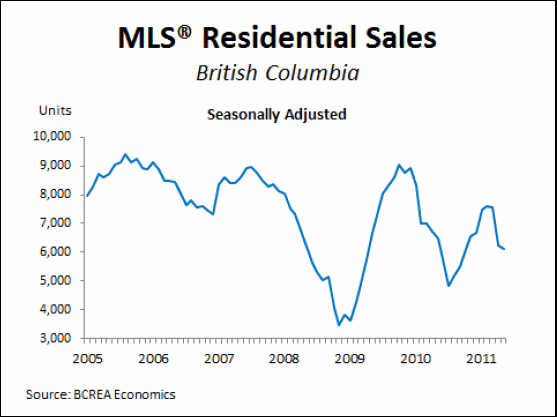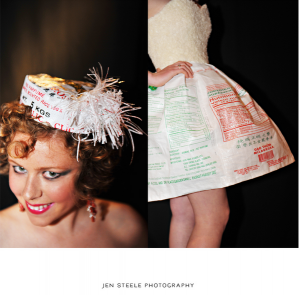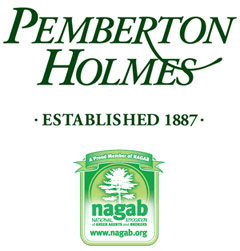One of the reasons people decide to go GREEN is to make their home a healthier one. If you’re working to make your home an allergy-friendly home then you may want to consider changing out your carpets with a hypoallergenic floor. Here are a few examples of ‘healthy floors’.
Bamboo
The green alternative to hardwood, bamboo is growing in popularity and dropping in price. Bamboo, only takes three years to mature – most hardwood takes between 50 and 100 years – and it flourishes with few pesticides!
Be careful when choosing your bamboo since some brands are made using formaldehyde, and other brands may emit volatile organic compounds (VOCs). Check with your installer if using an adhesive to make sure there is no off-gassing. Be sure to ask a supplier for an emission-free bamboo: it is available and beautiful!
Cork
This is another great and green alternative! Bark from the cork oak tree is harvested carefully (Portugal is a major exporter) and there isn’t much damage to the trees themselves. Some of the trees are hundreds of years old! The bark is then fashioned into tiles that are moisture resistant, making it a good choice, even in the kitchen.
Cork comes in a variety of colours and patterns, and it feels soft underfoot and is very attractive!
Natural Linoleum
Natural linoleum doesn’t refer to the vinyl flooring popular in 1950s kitchens. Today, the word has been reclaimed and is used to describe floors created from organic materials that are stylish and allergy-friendly.
Natural linoleum, also known by the brand name Marmoleum, is made from wood flour and bound together with flax and linseed oils to produce an anti-microbial barrier. Marmoleum comes in a variety of patterns and colours. It is durable, lasting about 30 years.
Tiles
There are lots of varieties of tiles including: ceramic, porcelain, slate, glass, even recycled rubber.
Tiles are easily mopped or wiped clean and are very durable. Once consideration is, when installing tiles, it’s important to use a VOC-free silicone sealer on the grout to ensure that it won’t absorb mildew, mould or dirt.
If you have any more questions about local suppliers or installers please get in touch!
Thanks to http://allergicliving.com for helpful facts!
Pemberton Holmes has been providing real estate services in Victoria since 1887. It’s no wonder that traces of the company’s founders are found throughout the community.
An interesting historical side-note the founder of our company J.D. Pemberton and his wife Theresa made some significant donations in their lifetime including the donation of the property used for the Victoria Golf Club. As suchVGC has kindly named the annual service award in honour of the family. Below are a couple of pictures taken from an evening of recognition and celebration enjoyed by approximately 100 Members on Thursday, May 5.
Vincent Holmes, great grandson and Richard Holmes great great grandson were in attendance. Mike Holmes did not attend as he was still worried they might remember him from when he used to sneak on the third tee.
Mr. Keith P. Walker was presented with the first Pemberton Award of Merit. This award recognizes outstanding volunteer service to the Club and its Members.
Keith P Walker with Richard Holmes (left) and Vincent (right) Holmes, great grandson and great great grandson of Joseph D. Pemberton.
It’s easy enough to SAY you’re a green Realtor… but what does that actually mean? In an attempt to avoid ‘green washing’ here are a few of the well defined objectives that I have set for myself to provide some accountability and checks and balances for my personal commitment to go GREEN as a Realtor.
In my Real Estate Practice I am committed to:
1. Marketing GREEN properties
2. Helping Buyers locate GREEN properties
3. Continually educating myself (I’m a member of the National Association of Green Agents and Brokers), and other about the benefits of buying and thinking GREEN
4. Being committed to running an ethical business, that is committed to giving back both locally and internationally.
If you have any more questions about buying, or selling GREEN then please get in touch! Your comments and thought are most appreciated.
In my definition GREEN real estate is energy efficient, water efficient, designed for healthy living, constructed with low impact materials, and is easily accessible to amenities.
There are more than 12 million dwellings in Canada and 17% of all energy used in Canada goes towards operating our homes.
Thermal energy plants use over 63% of our water supplies. So reducing electricity consumption in our homes helps reduce water use.
Buying green is the way of the future, and future proof’s your real estate investment!
Hearing Mayor Dean Fortin address the agents at The Professionals Networking lunch last week was a real treat. As real estate professionals interoffice networking is so important because it allows us to better serve our clients by directly networking their homes listed for sale to dozens of agents. It also gives our buyers a leg up because we’re often first to hear about the hottest listings hitting the market.
In addition to networking at this month’s event, our group was kept abreast of not only real estate activity in Victoria but of what our local officials are doing to make Victoria one of the best places in the world to live.
Among many important topics the mayor discussed how important a vibrant Downtown core is to any major city and highlighted that if the vitality of a city’s downtown was lost that the effects could be devastating and it’s recovery difficult. He cited examples of cities such as Detroit that have taken decades to rebound and restore liveliness to their city centres. To maintain both daytime and nightly patronage of Victoria’s downtown programs like the Clean and Safe project have been successfully implemented and continue to improve.
It truly was great of Mayor Dean Fortin to speak to our group and share his vision for Victoria with us. All of the efforts and developments made by council are too many to list here but more information can be found at www.victoria.ca.
BC Home Sales Edge Lower in MayVancouver, BC – June 15, 2011.
The British Columbia Real Estate Association (BCREA) reports that Multiple Listing Service® (MLS®) residential unit sales in the province edged down one per cent to 7,857 units in May compared to the same month last year.
The average MLS® residential price climbed 20 per cent to $596,872 last month compared to May 2010.“Tighter mortgage rules, tepid employment growth and advance buying during the first quarter kept BC home sales on a lower note in May,” said Cameron Muir, BCREA Chief Economist. “However, recent downward pressure on mortgage interest rates is expected to provide some incentive to consumers over the summer months.”
Year-to-date, BC residential sales dollar volume increased 15 per cent to $20.1 billion, compared to the same period last year. Residential unit sales edged back one per cent to 34,191 units, while the average MLS® residential price rose 16.5 per cent to$588,857 over the same period.
*Courtesy of BCREA
 This spring it was my great pleasure to have participated on the planning committee of Art Attire 2011. The wearable art fashion show was a fundraiser for the Art Gallery of Greater Victoria. Providing local textiles and fabric artists the opportunity to showcase their amazing work at the gallery. The show was SPECTACULAR!
This spring it was my great pleasure to have participated on the planning committee of Art Attire 2011. The wearable art fashion show was a fundraiser for the Art Gallery of Greater Victoria. Providing local textiles and fabric artists the opportunity to showcase their amazing work at the gallery. The show was SPECTACULAR!
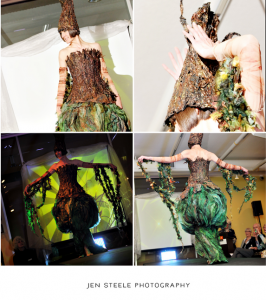 Now in its second year the event highlights the talents and creativity of local artists and designers.
Now in its second year the event highlights the talents and creativity of local artists and designers.
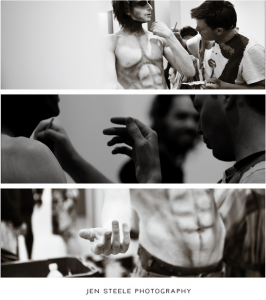

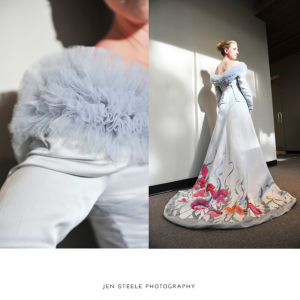



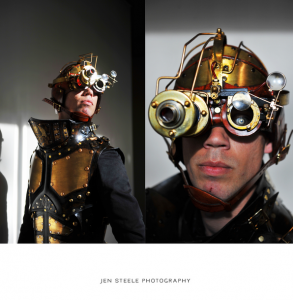
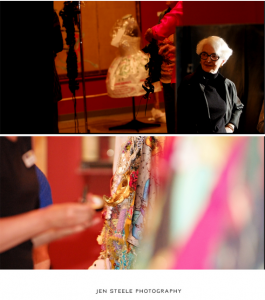

Thank you to all the artists and volunteers who made this evening a great success and to Jen Steele Photography for taking amazing photos of the night!
There are a variety of rating systems available to eco-consious buyers, here is a quick list with definitions, and links:
1. LEED (Leadership in Energy and Environmental Design) and was originally designed for commercial buildings, but is now used for residential energy rating as well. LEED Canada for Homes is the body “that promotes the design and construction of high-performance green homes”. Builders earn points that represent the style of construction used, and the ongoing use of the home after completion. Depending on the level of points earned a home is rated as LEED Bronze, Silver, Gold or Platinum (highest rating available). This rating can be both costly and time consuming to achieve, but is a great representation of a home’s actual impact on the environment.
2. EnerGuide Rating System is a ”standard measure of your home’s energy performance. It shows exactly how energy efficient your home is” (Natural Resource Canada). A home’s energy efficiency level is rated somewhere between 0-100, and the rating of 100 represents a fully airtight and well insulated home. This rating system measures how much power a home uses.
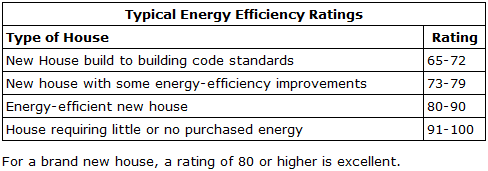 (Chart courtesy of Natural Resource Canada Website)
(Chart courtesy of Natural Resource Canada Website)
3. ENERGY STAR home has an EnerGuide rating of 80 or better and typically contains ENERGY STAR products throughout the home. ENERGY STAR for New Homes initiative promotes guidelines that builders can use to construct energy efficient new homes. ENERGY STAR for New Homes uses the same logo as the familiar labeling program for appliances and electronics and is a quick way to judge whether a home is energy efficient or not.
4. BuiltGreen™ is a third party certified home rating system and the EnerGuide Rating System is part of the certification process. This certification process is used in Alberta, BC and Ontario. Built Green Certification is less expensive and time consuming than LEED certification and this is a more common designation for homes in Victoria to have, but also promoting the use of resource-efficient, environmentally friendly, construction practices and products.
4. R2000 is a voluntary energy efficiency standard for new house. Is was developed by Natural Resources Canada in cooperation with Canadian home-building professionals and the housing industry and has existed since the early 1980s. This system not only considers the energy usage of the home, but the indoor air quality of the property.
5. Power Smart New Home is a BC Hydro program that “supports the nationally accepted EnerGuide rating systems by providing financial incentives and cooperative marketing to new residential home construction. A Power Smart home, will enjoy increased comfort and decreased operating costs for the lifetime of the home and will be a good selling feature in the future”. (BC Hydro Website)
For more information or details on how these ratings affect the market value of a home please contact us.
Home for the Honeymoon is an international wedding registry that allows couples to register for a down payment on a purchase towards a new home.
Home for the Honeymoon is launching a new blog that will not only feature professional and sound home purchasing advice from highly experienced Realtors, but also wedding musings and inspiration tips as well as real wedding documentation and discussion.
In honour of the blog launch, Home for the Honeymoon has set a goal to reach 1,000 “likes” on Facebook and we really need your help!
You and your honey could win a free cruise!
All you have to do is send Home for the Honeymoon a picture of you and your bride or groom with a short blurb on why the two of you deserve a free honeymoon, as well as “like” us on Facebook (www.Facebook.com/HomefortheHoneymoon) by July 1st!
Please send all entries via email to info@HomefortheHoneymoon.com.
Contest ends July 10th!
Home for the Honeymoon stipulates that 2 individuals will win the cruise – Port fees are not included. This contest is only valid in North America. Home for the Honeymoon reserves the right to use all contest entries on promotional media with contestant’s consent.
Gather your paperwork ahead of time
You’ll be way ahead of other buyers who are scrambling at the last minute. Your real estate agent will be able to let sellers know that you are ready to purchase and this can be a negotiation tool in your favour. Here is a list of paperwork that most lenders will need to approve your mortgage.
Confirmation of down payment
- Savings or investment account statements from within the last 90 days
- Sale of an existing property — a copy of the sale agreement
- If your down payment funds are a gift from your family— a gift letter
- Statement of withdrawal from RRSP through Home Buyer’s Plan
Employment verification:
- Copy of latest 2 pay slips
- T4
- Letter of employment
- T1 General
- Notice of Assessment (NOA)
- If self-employed ask your lender exactly what other information they will need you to provide
As part of the application process, you’ll be asked what some of the projected expenses relating to the property are, such as taxes, heating costs, condo fees, and whether you will be using the property to live in or generate income. You’ll also need to provide a void cheque.


